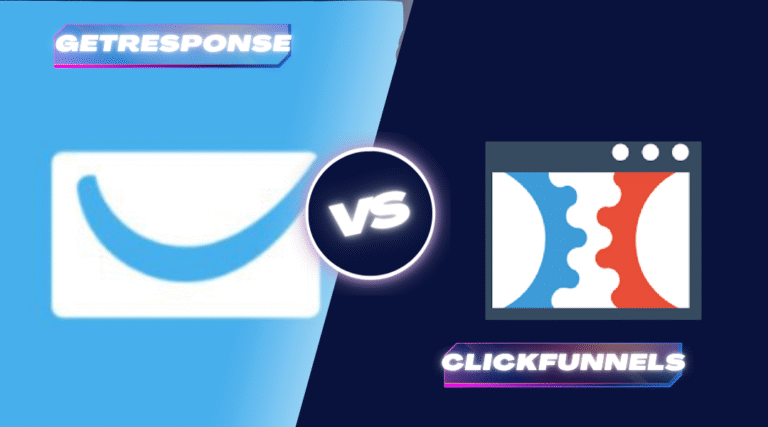Why Your AWeber Email Marketing Fails — and How to Fix It to Achieve Incredible Growth in 2025
Aweber email marketing continues to be a game-changer in the ever-evolving realm of digital marketing. Email remains a powerful tool for driving engagement and conversions, and success is often measured by return on investment (ROI). Leveraging a robust platform like Aweber can significantly enhance your efforts, ensuring your campaigns deliver maximum ROI. In this article, we’ll explore proven strategies to help you get the most out of Aweber.
Understanding ROI in Email Marketing
Defining ROI in the Context of Email Marketing
ROI in email marketing refers to the revenue generated from email campaigns relative to the costs incurred. It’s a metric that helps marketers understand the financial effectiveness of their email efforts. By calculating ROI, you can gauge whether your campaigns are profitable or need adjustments.
Importance of Measuring ROI for Email Campaigns
Measuring ROI is crucial as it provides insights into which campaigns are successful and which are not. It enables you to make data-driven decisions, optimize strategies, and allocate resources more efficiently. Without tracking ROI, you might continue investing in ineffective tactics, leading to wasted resources and missed opportunities.
What Makes Aweber Email Marketing Stand Out
Aweber is a comprehensive email marketing platform designed to simplify campaign management while enhancing performance. Key features include email automation, segmentation, analytics, and integrations with various tools. Aweber’s user-friendly interface and extensive support resources make it accessible for marketers at all levels.
Setting Up Your Aweber Account: A Step-by-Step Guide
- Sign Up and Account Setup: Visit the Aweber website, select a pricing plan, and create an account.
- Complete Your Profile: Enter your business information, including contact details and website URL.
- Create Your First List: Organize your subscribers by creating lists tailored to different campaigns or audience segments.
- Customize Your Settings: Adjust email preferences, set up custom fields, and configure your sender information.
- Import Subscribers: Upload your existing contacts or manually add new subscribers to your lists.
- Design Your First Email: Use Aweber’s drag-and-drop editor to create visually appealing emails with your branding elements.
Email Design Tips for Better Results with Aweber Email Marketing
Effective email design involves a clean, visually appealing layout that guides readers through the content. Use responsive design to ensure emails look good on all devices. Incorporate clear calls to action (CTAs), use white space judiciously, and maintain brand consistency with colors and fonts.
Writing Compelling Subject Lines and Content
The subject line is the first impression of your email. Craft subject lines that are intriguing yet concise, encouraging recipients to open the email. The content should be engaging, relevant, and provide value to the reader. Personalization and storytelling can enhance connection and response rates.
Segmentation and Personalization
Using Aweber’s Segmentation Tools to Target Your Audience
Aweber’s segmentation tools allow you to categorize subscribers based on various criteria such as behavior, demographics, and past interactions. By targeting specific segments, you can send more relevant content, increasing the likelihood of engagement and conversions.
Personalization Techniques to Enhance Engagement
Personalization goes beyond addressing recipients by name. Use data to tailor content to their preferences and behaviors. Personalized product recommendations, dynamic content blocks, and behavior-triggered emails can significantly enhance engagement.
Automation for Maximum Efficiency
Setting Up Automated Campaigns with Aweber
Aweber’s automation features enable you to create email sequences triggered by subscriber actions. Set up welcome series for new subscribers, nurture sequences for leads, and re-engagement campaigns for inactive contacts. Automation saves time while ensuring consistent communication.
Examples of Successful Email Automation Workflows
- Welcome Series: Introduce new subscribers to your brand and set expectations for future communications.
- Abandoned Cart Reminders: Recover potential lost sales by reminding customers of items left in their cart.
- Post-Purchase Follow-Ups: Thank customers for their purchase and suggest related products or request feedback.
Analyzing Campaign Performance
Key Metrics to Track for Measuring ROI
Track metrics such as open rates, click-through rates, conversion rates, and unsubscribe rates. Revenue per email and overall campaign revenue are also critical for understanding financial impact. These metrics provide a comprehensive view of campaign performance and areas for improvement.
Using Aweber’s Analytics Tools for Data-Driven Decisions
Aweber offers robust analytics tools that provide insights into subscriber behavior and campaign effectiveness. Use these tools to analyze data, identify trends, and make informed decisions. Custom reports can help track progress towards your ROI goals.
A/B Testing for Continuous Improvement
How to Conduct A/B Tests in Aweber
A/B testing involves comparing two versions of an email to see which performs better. Test elements like subject lines, content, images, and CTAs. Aweber’s A/B testing features make it easy to set up tests and analyze results, allowing for continuous optimization.
Analyzing A/B Test Results to Optimize Campaigns
Review the results of your A/B tests to determine which version achieved better engagement. Use these insights to refine future emails. Regular testing and optimization can lead to incremental improvements in performance and ROI over time.
Advanced Strategies for Boosting ROI
Leveraging Integrations and Add-ons with Aweber
Integrate Aweber with other tools and platforms such as CRM systems, e-commerce platforms, and social media. These integrations can streamline workflows and enhance the effectiveness of your email campaigns, contributing to higher ROI.
Advanced Targeting and Retargeting Techniques
Use advanced targeting techniques to reach specific audience segments with tailored messages. Retargeting campaigns can re-engage subscribers who showed interest but did not convert. These strategies can increase conversion rates and maximize ROI.
Common Mistakes to Avoid
Pitfalls That Can Hurt Your ROI
Avoid common mistakes such as sending too many emails, neglecting mobile optimization, and failing to segment your audience. These errors can lead to high unsubscribe rates, low engagement, and poor ROI.
How to Troubleshoot and Improve Underperforming Campaigns
If a campaign is underperforming, analyze the metrics to identify the problem areas. Test different strategies, adjust your content, and refine your targeting. Continuous monitoring and adjustment are key to improving performance and ROI.
Conclusion
Recap of Key Strategies
Maximizing ROI with Aweber involves a combination of effective campaign design, targeted segmentation, automation, continuous analysis, and optimization. Each strategy plays a crucial role in enhancing your email marketing efforts.
Final Thoughts on Maximizing ROI with Aweber Email Marketing
By leveraging Aweber’s robust features and following best practices, you can significantly improve your email marketing ROI. Stay committed to experimenting with new techniques and optimizing your approach for continued success.
Encouragement to Implement and Experiment with the Techniques
Implement the strategies discussed in this article and experiment with different approaches to see what works best for your audience. Consistent effort and a willingness to adapt will lead to sustained improvements and higher ROI.
👉 Don’t miss our in-depth guide: ClickFunnels vs GetResponse: Which One’s Right for You? Secrets 2025


